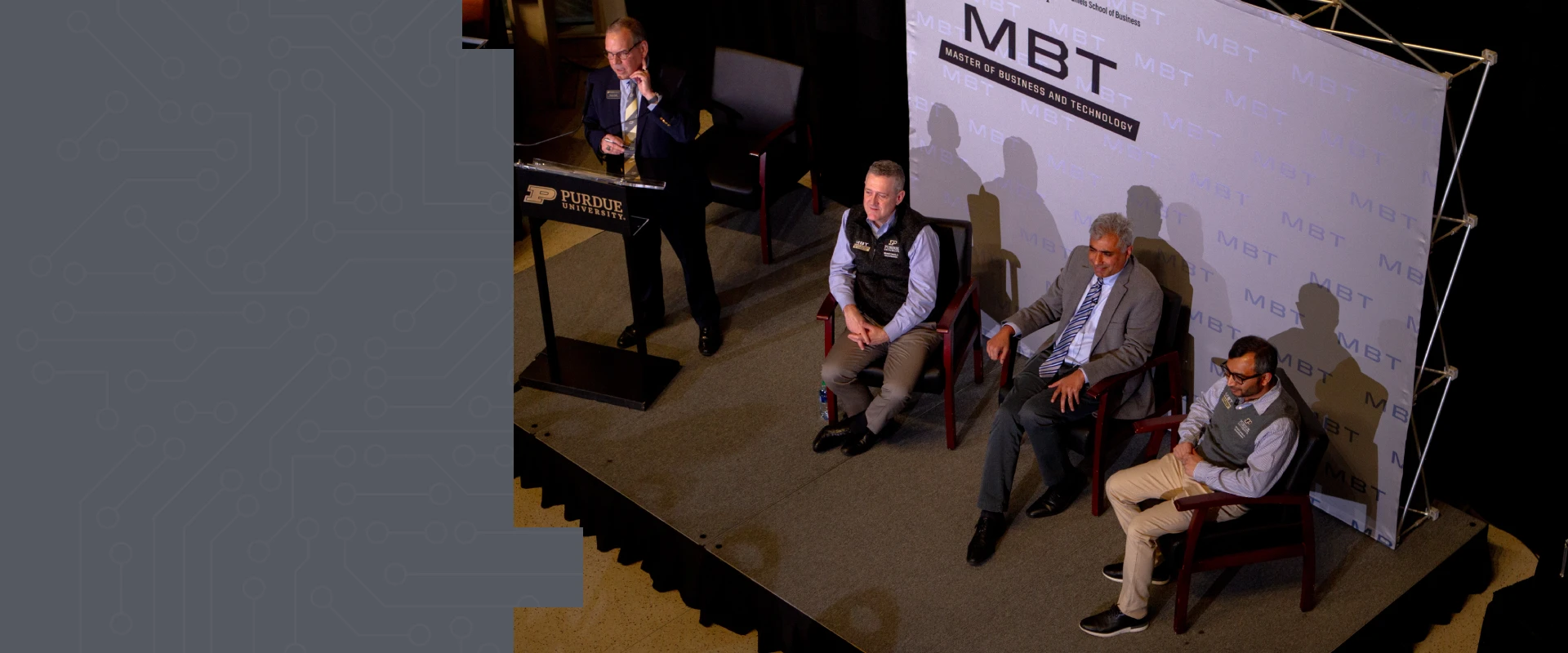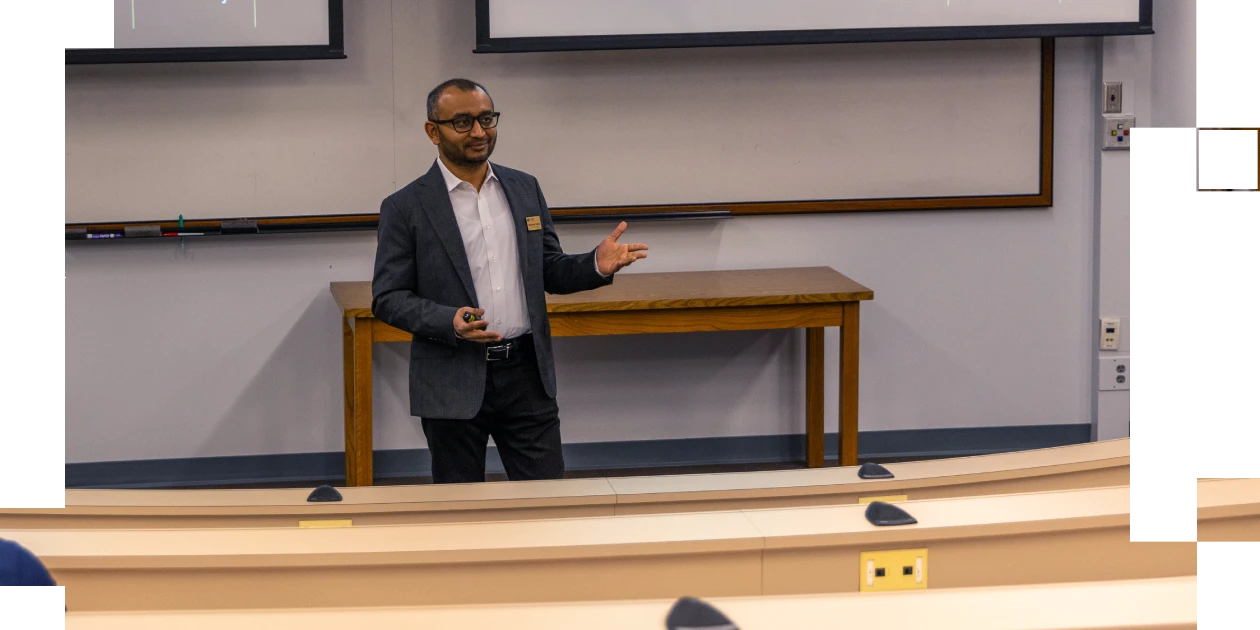
03-19-2025
AI, particularly generative AI, presents a challenge for finance industry leaders. It unleashed capabilities that have supercharged the pace of change. Companies that have long engaged with emerging technologies, now have an edge, so long as they can recruit a trained workforce to maintain it.

In 2024, the Daniels School launched the Master of Business and Technology (MBT) with input from an advisory board of industry leaders, including SixThirty Venture Funds’ managing partner, Atul Kamra. Through cutting-edge courses in robotics, AI and computational thinking, combined with leadership training, the MBT program helps students strengthen their business acumen and enter industries better equipped to address AI-based challenges in finance.
Kamra explains that traditional disruptive theory suggests incumbents, the legacy or long-established firms, typically hesitate to adopt new technology, especially when it’s unproven. They wait, and in doing so, the conventional view holds that they cede control. With a wait, they may reduce technology costs. Over time, the weaker aspects of the technology improve, but one thing remains consistent: it stays cost-effective. Meanwhile, competitive disruptors cater to either less demanding customers or early adopters.
However, in the case of generative AI, the conditions are different. Incumbents aren’t hesitating; they recognize it as groundbreaking for user experience, making the underlying technology radically accessible. A significant factor behind this shift is the rise of natural language as a universal interface. These tools aren’t perfect, but they are undeniably powerful.

Mohammad Rahman, academic director of the MBT program, explains that the program was designed to bridge a critical skills gap in the market where professionals must possess both financial expertise and a deep understanding of technology. The goal is to produce graduates who can effectively navigate the rapidly changing landscape of technology in finance and other industries.
The MBT program at the Daniels School fosters a “tech-first” curriculum—integrating the foundational principles of technology and business rather than simply adding tech courses to a traditional MBA. With industry-aligned classes like Digital Product Management and DevOps, students gain the expertise needed for tech-driven financial firms. Additionally, the program includes a Tech Governance and Regulations course that effectively addresses the finance industry's unique compliance needs, allowing students and rising professionals to engage with real-world challenges early in their careers. By emphasizing domain knowledge and highlighting the importance of customer journeys and industry-specific processes, students don’t just learn about AI integration—they understand its practical application.
Watch the full webinar for more insights on AI in the finance world and how the MBT program at the Daniels School of Business is training the next generation of business professionals to implement AI accurately and effectively.
If you would like to receive more information about pursuing a business master’s at the Mitch Daniels School of Business, please fill out the form and a program specialist will be in touch!